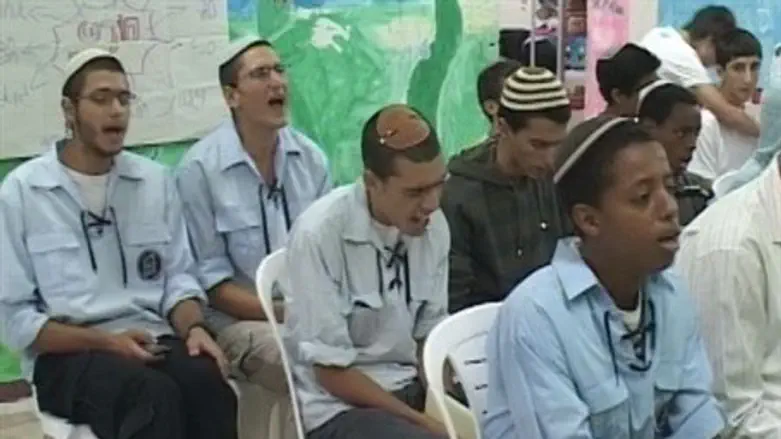
The Bnei Akiva youth movement, frustrated with the latest rocket attacks on Israel’s south, have decided to make their voice heard.
On Sunday, Bnei Akiva youth who reside in southern Israel, sat in their shelters and had one simple message to the government and to the rest of Israel: Enough of the shelters! We want normal lives!
“We’ve decided that we can no longer remain silent,” Moishe Kirschner, Bnei Akiva’s Yehuda District Coordinator, told Arutz Sheva. “It can’t be that we have branches that are being attacked in Ashdod, in Gan Yavneh, in Ashkelon, in Be’er Sheva. We’ve decided that we’re no longer accepting this. We’ve called all our branches and told them to gather in the shelters and simply call out: Enough of the shelters! We want normal lives!’”
“It cannot go on this way. Half the country is being attacked by missiles, and people are remaining silent,” Kirschner added. “It cannot be, it makes no sense. We must do something, and the minimum is to get together, to enter the shelters in dozens of places in all our branches and call out.”
Rabbi Elisha Vishlitzky, Torah lecturer who speaks to packed audiences weeky at Machon Ora in Jerusalem and Director of El Ami organization's Beit Midrash Mahut for teachers and congregations, said that the Bnei Akiva action shows the Israeli people’s strength and the fact that they are not just waiting apathetically to see what will happen.
He added that by taking action, the youth are sending out “a real, positive call out to the government of Israel, to the IDF, to find the courage, find the power, find the poise.”
“This is an extremely significant development at this juncture,” Rabbi Vishlitzky said. “I believe that these things are connected. The citizens empower the military, the military empowers the citizens and in the middle there should be, in my opinion, an active grassroots movement of rabbis, of public figures, of youth, of the Garin Torani [national religious families who move to development towns as an organized group to advance education and social projects,ed.], of the settlement enterprise – everyone working as one.”